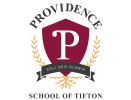by Samuel Norris, Dean of Students
What is the highest good our boys can aspire to as they advance into manhood? Many would argue it is athletic accomplishment; others, academic achievement; still more, career preparation. While these are all meaningful aims, I cannot help but see elements of these aspirations in a book I recently read with my class – The Voyage of the Dawn Treader by C.S. Lewis. The fifth installment of The Chronicles of Narnia series introduces us to a boy named Eustace. He is described as one who loves facts, evidenced in his voracious reading of scientific and technical books which cover topics ranging from the construction of elevators to the operation of trains. To the modern eye, he seems like a pupil primed for success. Yet, according to Lewis, Eustace didn’t read the “right sort of books” (Lewis, 1952, p.75). What is Lewis getting at?
Lewis’ point becomes evident quite quickly once Eustace finds himself in Narnia, joining his two cousins on a seafaring journey to the end of the world. He hastily shows himself to be cowardly, prideful, and lazy. These vices reach a climax when, once his ship docked at a new island, he runs away to avoid work. In the process, he finds a mysterious golden band, which he promptly puts on his wrist.
Lewis describes the fallout, “Something was crawling. Worse still, something was coming out [of the cave]. Edmund or Lucy or you would have recognized it at once, but Eustace had read none of the right books. The thing that came out of the cave was something he had never even imagined – a long lead-colored snout, dull red eyes, no feathers or fur, a long lithe body that trailed on the ground, legs whose elbows went up higher than its back like a spider’s, cruel claws, bat’s wings that made a rasping noise on the stones, yards of tail. And the two little lines of smoke were coming from its two nostrils. He never said the word Dragon to himself. Nor would it have made things any better if he had (Lewis, 1952, p. 75-76).”
Eustace possessed his vices because he did not read the right stories – stories of adventure, conquest, and danger. But most alarmingly, this problem isn’t limited to Eustace. Rather, it is a universal modern problem. It is incredibly common for our modern society to recognize what is wrong with the world, but it is tremendously rare to hear someone articulate what a good, right world would truly look like. In other words, we have no ideal to aspire towards. G.K. Chesterton asserts this in Heretics, saying, “Mr. Shaw sums up Ibsen’s teaching in the phrase, “The golden rule is that there is no golden rule.” In his eyes this absence of an enduring and positive ideal, this absence of a permanent key to virtue, is the one great Ibsen merit. I am not discussing now with any fullness whether this is so or not. All I venture to point out, with an increased firmness, is that this omission, good or bad, does leave us face to face with the problem of a human consciousness filled with very definite images of evil, and with no definite image of good. To us light must be henceforward the dark thing—the thing of which we cannot speak. To us, as to Milton’s devils in Pandemonium, it is darkness that is visible. The human race, according to religion, fell once, and in falling gained knowledge of good and of evil. Now we have fallen a second time, and only the knowledge of evil remains to us” (Chesterton, 1905, p. 30-31).
I must now return to my original question – what is the highest good our boys can aspire to as they advance into manhood? It is the proper perception of the ideal, which accurately recognizes what is good, beautiful, and true. Truthfully, the only way to reverse our modern course and teach boys this ideal is for them to read the great classical stories of history. After all, what boy can read The Odyssey and not revel in the glory of returning home from a long adventure? Whose son can remain unchanged after reading about the courage the Greeks displayed in the face of the Persian invasion in Herodotus’ Histories? And what young man can deny the necessity of friendship after reading Tolkien’s Lord of the Rings?
It is often asserted that we should prioritize college, career, and sports as boys mature. The argument is that these are more “useful” than reading the classical stories. The great irony of this is that there is no way to truly assert what is useful without first believing in and forming a comprehensive ideal. Failing to do so first puts the cart before the horse.
Ultimately, there is no greater hope I can have for a growing boy than that they know the ideal. As boys grasp this they will eventually learn that all goodness, beauty, and truth flows from God. Without this, they will become “men without chests,” those who lack heart (Lewis, 1943, p. 25). College, career, and sports are valuable, but they are worthless until we first implant an ideal in students so they can love what is right. May we have the courage to shirk the foolishness of our time and provide our boys with what they truly need.
References
Chesterton, G. K. (1908). Orthodoxy.
Lewis, C. S. (1947). The abolition of man: Or, reflections on education with special reference to the teaching of English in the upper forms of schools.
Lewis, C. S. (2009). The voyage of the dawn treader (The chronicles of Narnia, book 5). HarperCollins UK.

